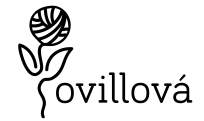What is the softest wool? You often ask us.
It is obvious that all of us who knit tend to look for the softest possible yarn to knit, so it is important to take into account the different aspects that influence the greater or lesser softness of the yarn.
The first thing to consider is that the softness of wool for knitting is difficult to measure as it is a rather subjective quality. But what we can take into account, and what I come to share here, are some objective, clear and universal criteria that are considered valid in the knitting universe.
Wool and its microns.

What are microns? This is a question we are often asked. A micron (micrometer) is a unit of measurement of length, and is one millionth of a meter (0.001 mm). When we talk about microns in the
in the wool world, we refer to the thickness in microns of each hair of the sheep (or other animals). Maybe
that you hear micra instead of micron, but it’s the same.
There is a classification in terms of fineness and microns, which is widely used, that follows the following categorization:
Normally sheep’s wool is normally itchy from 23 microns onwards, however, alpaca wool is usually itchy from 28 microns onwards. In any case, itching is very relative and each person perceives it differently.
The thicker the hair is, the more microns it will have (measure), and therefore, that wool, once transformed into yarn, will itch more. This is a very general law that does not always apply, because depending on the type of yarn and its twist, it can be more or less itchy.
Keep in mind that many different hairs are mixed when spinning and that the number of microns is the number of hairs in the yarn.
average of the wool hairs that make up the yarn.
The origin of the thread: tell me what animal you are and I will tell you if you are soft.

There are animals that have softer hair, less microns, and others that have more, but there is a universal common sense truth: the first shearings of animals produce softer wool. For example, baby alpaca wool is softer than adult alpaca wool. Baby yak wool is softer than adult yak wool and lamb wool is softer than sheep wool.
As for what I said about the softness per animal, I leave you a ranking of the animals with the softest hair (and therefore wool):
- Vicuña – 10 microns
- Cashmere – from 14 to 17 microns
- Baby yak – around 17 microns
- Baby alpaca – from 17 to 22 microns
- Extrafine merino wool yarn: until 16,9 microns
- Fine merino wool yarn: from 17 to 19,5 microns
- Merino wool yarn: from 19,6 microns
- Mohair – from 25 to 45 microns
Then, outside this classification by microns, we have silk, whose softness, as you know, is high.

On the other hand we have the yarns of vegetable origin, we could say that jute would be among the roughest yarns, and that pima cotton would be among the softest cotton yarns to weave, right?
The processing and spinning of wool. Carding and combing.

You can find yarns made from carded wool only, or yarns made from combed wool, which in this case will have been previously carded.
The carding process consists of passing the wool through rollers with teeth in different directions to separate and flatten the fibers, thus making it fluffy. Carded-only wool is coarser, but also fluffier and warmer, as it has more air chambers between the fibers.
The combed wool, as its name indicates, has a subsequent combing that aligns and softens the wool into longer fibers, so that the ball of wool will be softer and denser, but less warm.
The spinning process and its influence on softness.

Besides the method of spinning, which I am no expert on and I am not going to comment on until I do more research from people who know more about it, the twist is another characteristic that influences the softness of the wool for knitting.
The twist is how twisted the yarn is and more or less twist makes the yarn look softer or softer and also more or less elastic.
An example: if it has two strands and little twist, it will feel softer to the touch than if it has 4 more twisted strands.
And that’s all for the moment, I hope it helps you in your search for the softness you deserve, for your waters and for your skin.
Visit our online store, where you will find very soft wools and yarns for knitting, and write us for any questions you may have.



